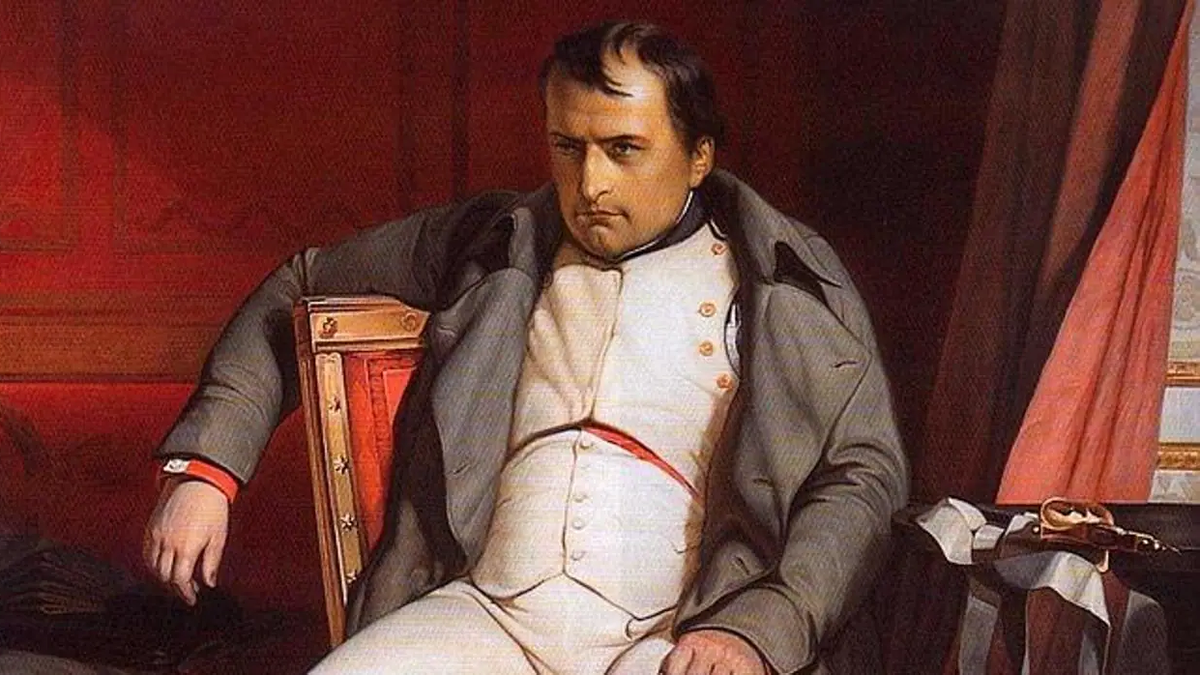On March 31, 1814, the tsar Alexander Ithe king Frederick William of Prussia and the Austrian prince Schwarzenbergentered Paris with their armies, putting an end to the disastrous Russian campaign that Napoleon It had begun on June 24, 1812. Bonaparte He knew well that “victory has a hundred fathers, but defeat is an orphan”… although in this case, without a doubt, Napoleon was the father of the child.
This end of March, Bonaparte He waited alone in his castle of Fontainebleau for the outcome of the negotiations while his chancellor, the glassy Prince of Talleyrandhanded over the keys of the city to the kings of Europe who had allied themselves against the French emperor.
The defenses of Paris had been breached thanks to the treachery of the marshal marmont, Duke of Ragusa, friend and companion in arms of Napoleon since his time at the Academy. He himself negotiated the surrender of his men to the invaders. There was no point in spilling more French blood. Napoleon’s was a lost cause.
This act of surrender was taken as the paradigm of betrayal. In fact, in French, the word “ragusade” is synonymous with disloyalty. Curiously, marmont He was temporarily tutor of the son of Napoleon in Vienna, and his name is among the victorious generals inscribed on the Arc de Triomphe.
While Murat clinging to the throne of Naples, his marshals and generals acted oblivious, this gesture from one of his oldest companions made him understand Bonaparte that the former combatants were no longer on his side… On April 6 he said goodbye to his guard and abdicated. Even so, he wanted to impose his conditions and proposed that his son succeed him… but Napoleon I was not in a position to demand anything. The allied forces opposed this choice and consecrated the brother of the deceased Louis XVI as the next monarch to wear the crown of France. That’s how Louis XVIII ascended the throne, in the absence of the never anointed Louis XVIIdied in the du Temple prison (although his life has given rise to a thousand implausible conjectures, such as his appearance in a distant former Spanish colony on the banks of the Río de la Plata).
To make matters worse, the victors claimed revenge: The prince Blucher He called for the destruction of the Jena Bridge, named after the battle in which Napoleon had defeated the Prussian troops in 1807. Luckily his allies dissuaded him from this historical and aesthetic retaliation.
While the Russian Cossacks camped on the Champ de Mars (where the Eiffel Tower would later be built), Alexander I I visited the beautiful Josephineforced to divorce her lover Napoleon since he had not been able to give him offspring. Alexander He was very generous with Josefina, to whom he gave expensive gifts such as a rare cameo and a diamond necklace.
In the days he was in Paris, Alexander He frequently visited Josephine at her palace in Malmaison, a circumstance that lent itself to the most diverse conjectures about the nature of the bond that united them. The truth is that Josephine died shortly after these meetings from pneumonia, although there were no shortage of versions that attributed her death to a poisoning ordered by the slimy Talleyrand to prevent the former empress from acting under the influence of the tsar or from being join Napoleon in his exile on the island of Elba.
image.png
Upon learning of his death, Bonaparte lamented “I truly loved Josephine, but I did not respect her.”
Dejected by these events, Napoleon On a bitter night (specifically April 12), while lying in his bed, he asked his valet to close the windows of the room.
The betrayals, the abandonment, the triumph of his enemies, the return of Louis XVIII And Josefina’s infidelity?
The truth is that that night life seemed to have lost meaning for Bonaparte. He tried to say goodbye to his wife Marie Louise of Austria and a message for his son who was barely three years old, but after a while he tore the paper and just wrote a simple goodbye. The heartbreak has no words.
Since the calamitous campaign in Russia, he carried an envelope with cyanide in his jacket pocket to ingest in case he fell prisoner. He poured the powder into a glass and, in one sip, drank the bitter brew. A few minutes later, abdominal cramps made him scream in pain. Immediately his assistant entered and, with a contorted face, asked that the general be called. Caulaincourt, to whom he confessed to having drunk cyanide.
Caulaincourt He called the court doctor, Jean-Nicolas Corvisart, who made him vomit. When you wake up the next day, Napoleon he told Caulaincourt: “If not even death wants me, it’s time for me to go.” A few days later, he took the ship that took him to his tiny monarchy on the island of Elba, where he only reigned for 300 days.
In the last days of the campaign to Russia, Napoleon wrote a letter to Victor De Pradthis ambassador in Warsaw, where he expressed his regret: “From the sublime to the ridiculous there is but one step” that he gave when fleeing Moscow in despair. However, as a man of genius, he was convinced that even from ridicule he becomes ridiculous and on March 20, 1815 he left Elba to recover the throne of France… But once again, glory escaped him.
Source: Ambito
David William is a talented author who has made a name for himself in the world of writing. He is a professional author who writes on a wide range of topics, from general interest to opinion news. David is currently working as a writer at 24 hours worlds where he brings his unique perspective and in-depth research to his articles, making them both informative and engaging.




